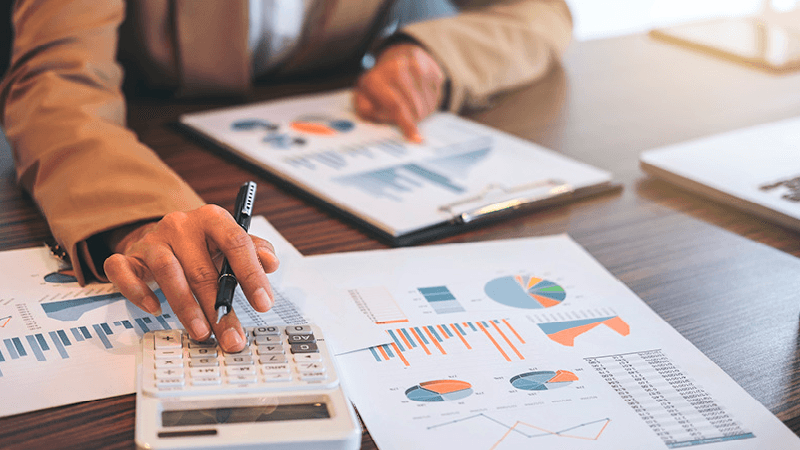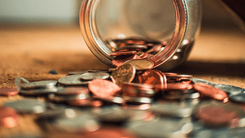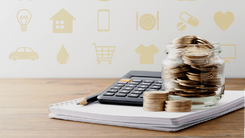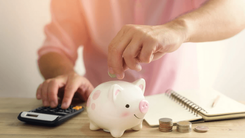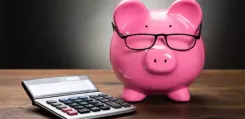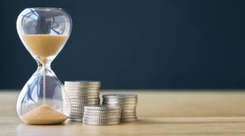When it comes to personal finance, it is easy to be tempted to spend more than you can really afford. However, this lack of control can lead to major consequences, such as excessive indebtedness or even bankruptcy.
That is why it is important to take preventive measures to avoid these risks. In this article, we explore some of the dangers associated with uncontrolled personal finances and share some strategies to keep your finances in good shape.
Introduction
Personal finances are the management of an individual's or family's income and expenses. If not properly controlled, they can become a major problem and lead to situations of indebtedness and stress. In addition, financial risks can affect all aspects of life, from mental health to relationships with family and friends.
This text will present some of the most common risks associated with uncontrolled personal finances, as well as measures that can be taken to prevent them and have a healthier financial life.
The risks of not controlling personal finances
When you do not properly control your personal finances, you run the risk of:
- Accumulating debt and paying high interest.
- Not being able to meet unforeseen expenses.
- Not being able to save for the future.
- Living constantly worried about money.
- Having difficulty planning long-term financial goals.
For these reasons, it is important to take measures to prevent risks and to have an adequate control of our personal finances. Some measures we can take are:
- Keep a detailed record of our income and expenses.
- Make a monthly budget and adjust it if necessary.
- Save part of our income for emergencies and long-term goals.
- Pay our debts on time and avoid accumulating new unnecessary debts.
Unpayable debts
One of the biggest risks of uncontrolled personal finances is unpayable debts. This occurs when debts accumulate that cannot be covered with disposable income, leading to non-payment and, consequently, increased interest, penalties and fees.
To avoid this situation, it is important to control expenses and avoid acquiring goods or services that are not essential. You can also seek the help of financial advisors to organize your finances and create a plan to repay your debts.
Another preventive measure is debt consolidation, which consists of grouping all debts into a single installment with a lower interest rate and a longer term. However, this option should be carefully evaluated, as it may not be feasible or convenient in all cases.
Living on the current
One of the biggest temptations when it comes to personal finance is to live day-to-day. This means spending all or most of the money you receive in the short term, without taking into account future or unforeseen expenses that may arise.
This attitude can have negative long-term consequences, as it can lead to the accumulation of debts and the impossibility of facing important expenses, such as medical emergencies or home repairs.
To avoid falling into this trap, it is important to make a budget and set long-term financial goals. It is also advisable to save a percentage of monthly income for contingencies and prioritize truly necessary expenses.
Lack of savings or long-term investment
One of the main causes of risk in personal finances is the lack of savings or long-term investment. Many people live from day to day without worrying about the future, which can lead to complicated situations in the event of an emergency or job loss.
It is essential to have an emergency fund that can cover at least three months of expenses and to look for long-term investment options that can generate passive income and ensure a solid financial future.
Lack of financial planning can lead to impulsive decisions and poor investments that can end in significant losses. Therefore, it is important to educate yourself on personal finance and have a solid plan for the future.
Steps to prevent personal financial risks
Keep track of expenses:
- Establish a monthly budget
- Record all expenses
- Identify unnecessary expenses and avoid them
Saving:
- Set savings goals
- Automate savings
Debt reduction:
- Pay off debts with higher interest rates first.
- Do not acquire new unnecessary debts
- Negotiate with creditors in case of payment difficulties
Be careful with investments:
- Do not invest in unfamiliar products or without understanding how they work.
- Diversify investments to reduce risk
- Do not invest more money than you can afford to lose.
Taking these steps will help minimize personal financial risks and maintain good financial health.
Keep detailed financial records
One of the most effective measures to prevent uncontrolled personal finance risks is to keep detailed financial records. This involves recording all income and expenses, however small, in a tool such as a spreadsheet or specialized application.
Keeping a detailed record allows you to have a clear picture of how much money is being spent in each category, identify unhealthy financial patterns and habits, and take steps to correct them. It also makes it easier to track long-term financial goals.
It is important to be consistent and record all financial movements, from cash purchases to credit card payments. It is also advisable to review the record regularly and make adjustments as needed to avoid deviations.
Cut unnecessary expenses
One of the most effective measures to avoid financial risks is to cut unnecessary expenses. Many times we spend money on things we don't need or that we could get at a lower price. For example, we can reduce food expenses by buying private labels or cooking at home instead of eating out.
Other ways to reduce expenses can be to cancel subscriptions that we no longer use, make a shopping list before going out to the supermarket to avoid impulse purchases, and reduce transportation expenses by prioritizing the use of public transportation or walking instead of using the car. Cutting unnecessary expenses not only helps to keep our personal finances under control, but also encourages healthier and more sustainable habits.
Increase income with side jobs or profitable investments
One measure to get personal finances under control is to increase income. One way to do this is to look for side jobs that provide additional income. For example, if you have graphic design skills, you can offer freelance design services through online platforms.
Another option is to invest in profitable businesses. It is important to research about possible investments and evaluate the risk involved before making any decision. Some options may include investing in real estate, investing in the stock market or mutual funds.
It is important to remember that, as with any investment or job, it requires dedication and effort to obtain positive results. In addition, it is essential to maintain good financial management and not to over-indebt when seeking to increase income.
Learning about personal finance and financial education
To avoid the risks of uncontrolled personal finances, it is important to educate yourself on money and financial management. Here are some steps you can take:
- Read books on personal finance and financial education.
- Attending courses and seminars on the subject
- Consult with financial experts or accountants
- Create a monthly budget and follow it rigorously
- Pay all debts in full and on time.
- Save and invest wisely
- Do not spend more than you earn
Learning about personal finance will not only help avoid short-term risks, but will also allow for better long-term financial planning.
Conclusion
In conclusion, the risks of uncontrolled personal finances are high and can lead to unfavorable economic situations. Lack of financial planning, excessive indebtedness and lack of savings are some of the main factors contributing to these risks. To prevent these risks, it is important to keep an exhaustive control of our income and expenses, plan our budget and reduce indebtedness.
It is also essential to have a financial cushion that allows us to deal with unforeseen events without resorting to debt. Finally, it is important to constantly educate ourselves on financial matters so that we can make informed and appropriate decisions for our personal finances. With good financial management, we will be able to achieve our economic goals and enjoy a more peaceful and secure life.

